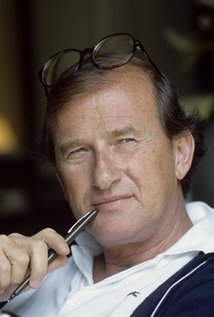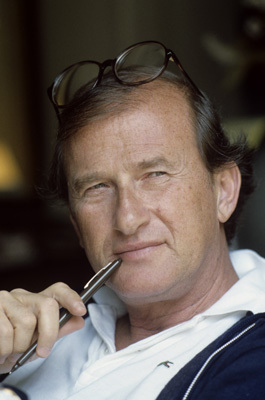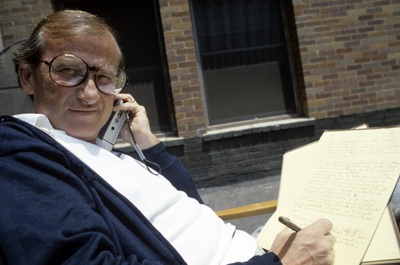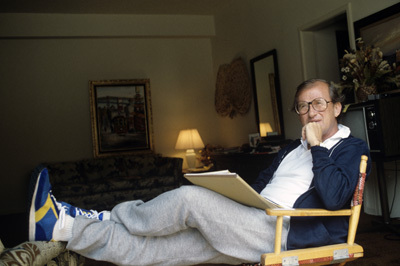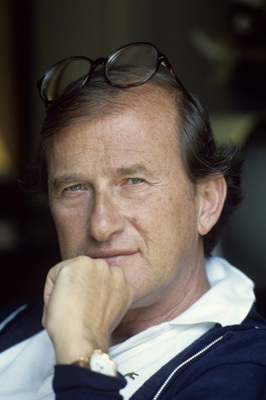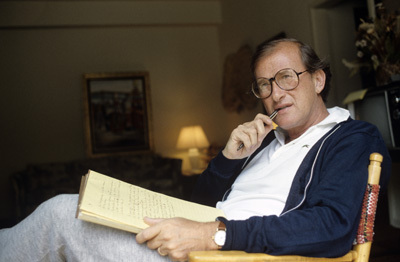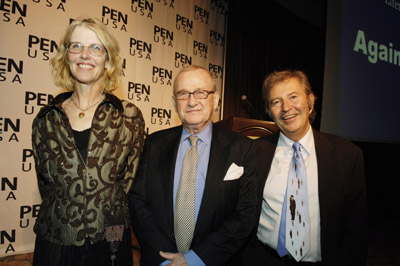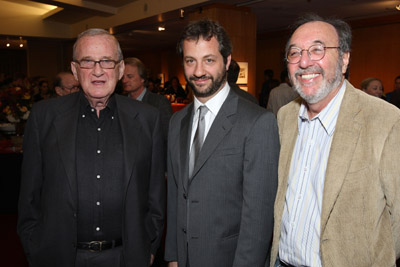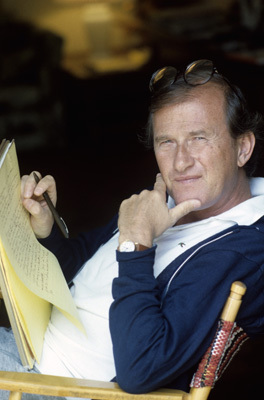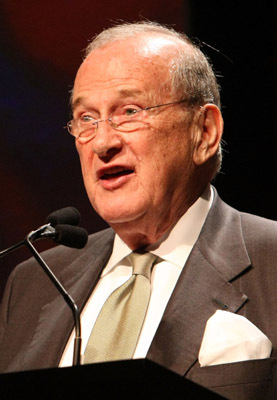The gift of provoking laughter came early to Larry Gelbart and has never deserted him. His distinguished career as a writer of comedy reads like a history of the art over the last 40 years. His writing credits date back to the Golden Age of radio, thanks in part to his father. The elder Gelbart was a barber in Beverly Hills who made it a point to t...
Show more »
The gift of provoking laughter came early to Larry Gelbart and has never deserted him. His distinguished career as a writer of comedy reads like a history of the art over the last 40 years. His writing credits date back to the Golden Age of radio, thanks in part to his father. The elder Gelbart was a barber in Beverly Hills who made it a point to tell his clients, such as Danny Thomas, what a funny 15-year-old son he had. As a result of his father's being his unofficial agent, Larry became a professional comedy writer before finishing high school. Shortly after being signed by the William Morris Agency, he joined the writing staff of "Duffy's Tavern," working for the man generally considered to be the hardest taskmaster in radio, Ed Gardner. "Seventy writers went through the mill while I was there," recalls Gelbart. "I was lucky because I was young and everybody wanted me to make good. They were all my godfathers." Gelbart left "Duffy's Tavern," to write for the "Joan Davis Show." While doing that he was called into the Army. He served with Armed Forces Radio Service for one year and 11 days, but it was a most productive period. He wrote for the Army's "Command Performance," while continuing to write for Joan Davis and Jack Paar, who was then a summer replacement for Jack Benny. He then went on to write for Jack Carson and Bob Hope, both on radio and television, and he also contributed to the Red Buttons TV show. In 1953 he joined the staff of TV's Your Show of Shows (1950), writing skits for Sid Caesar and Imogene Coca in company with such fellow master wits as Mel Brooks, Carl Reiner and Neil Simon. For that series Gelbart won the Sylvania Award and two Emmy Awards. In the 1960s he began writing for the theater. He wrote "My L.A." and "The Conquering Hero," and with Burt Shevelove tried his hand at rewriting Plautus. The result was "A Funny Thing Happened on the Way to the Forum," a smash Broadway musical comedy starring Zero Mostel that earned Gelbart and Shevelove a 1962 Tony Award. When "Forum" moved to London, Gelbart and his family went with it. During his nine-year stay there, he wrote the comedy film The Wrong Box (1966), a play called "Jump," some spaghetti westerns for Clint Eastwood and several television scripts. Gelbart came back to Los Angeles to write the television series M*A*S*H (1972) He was responsible for 97 segments of that show, one of television's most literate and entertaining efforts. Four years later he again dipped into the classics and transformed Ben Johnson's "Volpone" into a Broadway success, "Sly Fox," directed by Arthur Penn and starring George C. Scott. Gelbart's screen credits include The Notorious Landlady (1962), Not with My Wife, You Don't! (1966), Oh, God! (1977), Neighbors (1981), Movie Movie (1978) (directed by Stanley Donen) and Tootsie (1982), which earned him an Academy Award nomination and best screenplay honors from the New York, Los Angeles and National Film Critics organization.
Show less «

